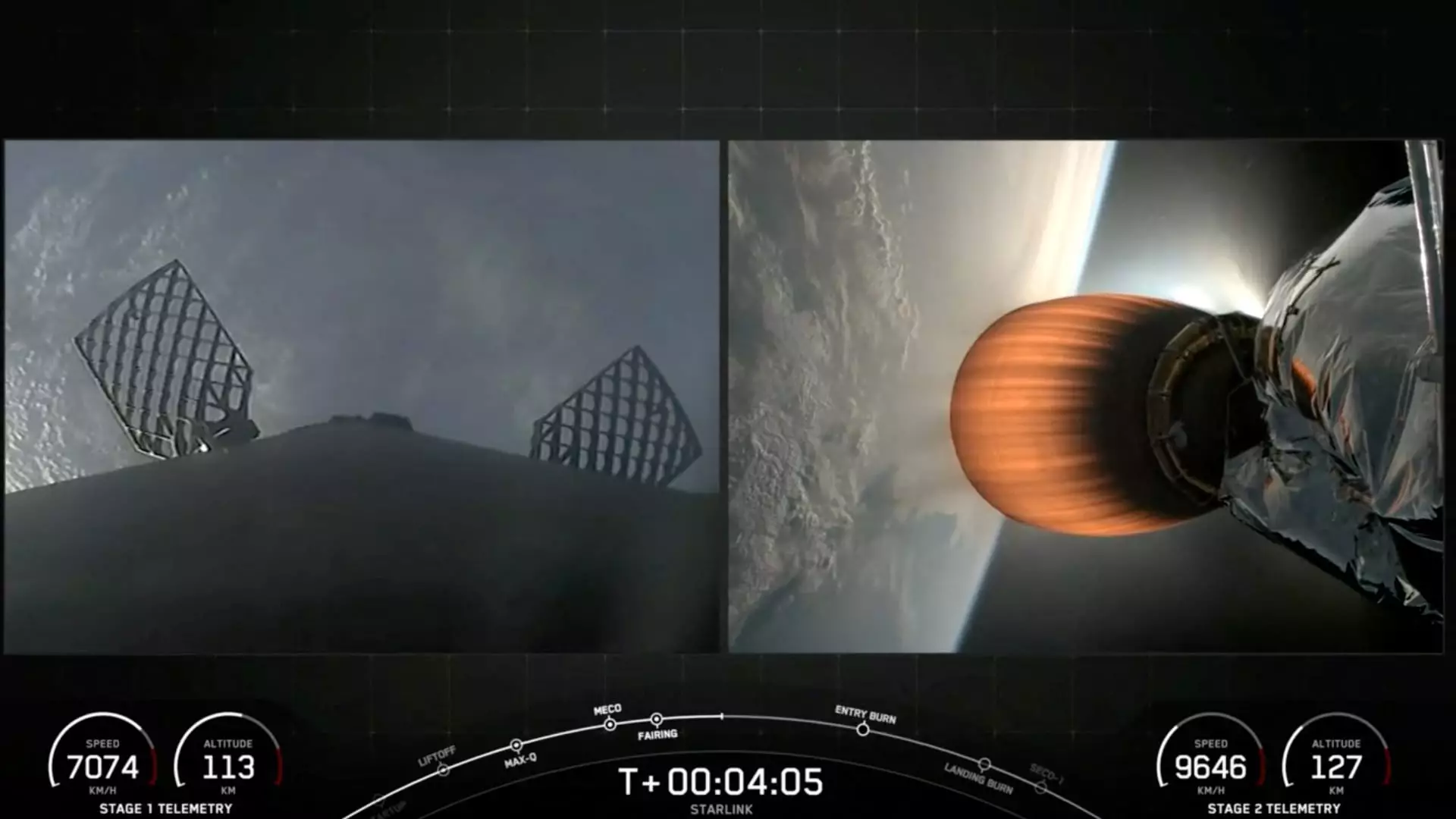SpaceX’s Falcon 9 rocket recently faced an unexpected setback, leading to the grounding of the vehicle pending an incident investigation. The incident occurred during the “Starlink Group 9-3” mission, where the rocket was supposed to launch 20 satellites into low Earth orbit. While the lower first stage of the rocket performed as expected, the upper second stage encountered an engine failure, resulting in the destruction of the stage.
Elon Musk, the CEO of SpaceX, confirmed the failure in a post on social media, mentioning that an attempt to restart the engine to raise the rocket’s perigee led to a rapid unscheduled disassembly (RUD) event. This rare misfire comes after an engine failure caused by a leak of liquid oxygen in the second stage. As a result, Falcon 9 is currently grounded until the Federal Aviation Administration (FAA) completes its review of SpaceX’s investigation and approves any necessary corrective actions.
The investigation into Falcon 9’s incident is expected to delay upcoming launches, including two crewed missions: the private Polaris Dawn mission and NASA’s Crew-9 mission. Despite the setback, SpaceX managed to deploy 20 Starlink satellites into a lower than intended orbit. Efforts were made to communicate with 10 of the satellites to utilize their thrusters for orbit adjustment. However, due to the high-drag environment caused by the lower orbit, the satellites are unlikely to be recovered and will eventually burn up upon re-entering the Earth’s atmosphere.
Prior to this recent setback, Falcon 9 had maintained an exceptional track record of success, with over 300 consecutive successful orbital launches. The rocket had not faced an inflight failure since June 2015, during the NASA cargo mission CRS-7. Overall, Falcon 9 has completed 354 missions to orbit, with the majority resulting in successful landings and the reuse of rocket boosters more than 280 times.
The recent incident that grounded SpaceX’s Falcon 9 rocket serves as a reminder of the inherent risks and complexities involved in space exploration. Despite the setback, SpaceX’s commitment to safety and continuous improvement will play a crucial role in addressing the issues that led to the inflight failure. As the investigation progresses, the space community eagerly awaits SpaceX’s findings and the measures that will be implemented to prevent similar incidents in the future.

